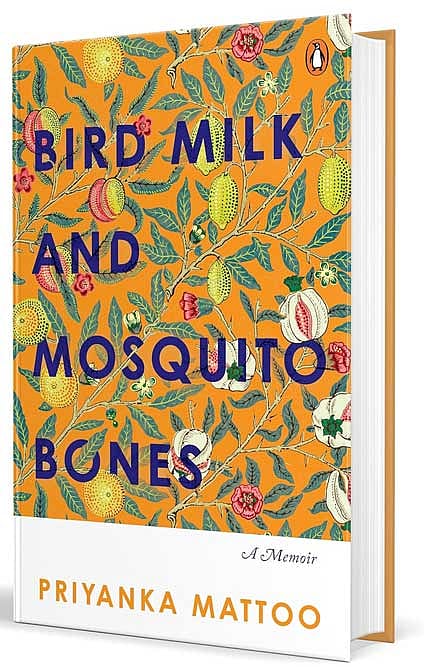Leaving Kashmir

“I have my own stories to tell, and Dad can read those,” writes Priyanka Mattoo in the final chapter of her memoir, Bird Milk and Mosquito Bones. This clarity and insight, however, comes to her only after a long search for books on Kashmir’s past—riddled with remnants of racism and colonialism—and an even longer search for her Kashmiri identity and its manifestations. Mattoo, a former talent agent in Hollywood, finds her way to writing and discovers its cathartic values as she opens up about the love and loss she has grown up with—from her family house in Kashmir, that was looted and burnt, to the wounds of displacement that she, and her immediate and extended family, never truly healed from. Her perceptive, free-flowing memoir is but a tribute to this bittersweet journey, across generations and continents, as she works around her “mountain of cultural guilt”.
Displaced and disheartened, Mattoo’s family tries to build a home in different pockets of the world. The worsening socio-political turmoil in the 1990s in Kashmir dissolved all hopes of Mattoo’s father to settle down in their dream house and build a clinic for the community. The family returns to England and then shifts to Riyadh where her mother adjusts her aspirations in the land of conservative diktats. The American dream follows, where Mattoo spends her troubled teen years. An aunt, meanwhile, is murdered back home. Amidst all this shifting and distress in the family, Mattoo learns to put the worries of those around her above her own needs. As a child, she learns to sit quietly in a corner and disappear into a book. As an adult, she learns to silently carry the generational trauma inside her body and let it take the shape of irrational qualms and worries; perpetually afraid of losing the security she had earned in life, knowing very well that it is indeed possible to lose everything all at once. She carries a yearning that never settles; the missing ‘sense of place’ refuses to leave her: “In the spectrum of the diaspora, I fall neither here nor there. I didn’t grow up in India, I present as American, and I don’t exactly relate to it either. This can be disorienting enough without the petulant urge to scream. It wasn’t supposed to be like this. We were supposed to move back to Kashmir.”
Rule Americana
16 Jan 2026 - Vol 04 | Issue 54
Living with Trump's Imperium
Rich in flavour and cultural history, Mattoo’s writing has a universal ability to connect one human to another through family folklore and storytelling, but lacks the descriptive depths of a memoir. It is more anecdotal than biographical. It is, in fact, a compendium of personal essays, moving back and forth in time. Nonetheless, the reader gets to know Mattoo in an intimate, priceless way. From one essay to another, Mattoo writes with nostalgia—of her childhood and youth, of her relationship with food and her mother, of meeting and loving her husband, and of her parents’ courtship.
She also commemorates music and art that remains undivided by maps and the troubled history between the two sister countries, India and Pakistan, as she recalls her conversations with musicians Ali Sethi and Hasan Raheem.
Politics finds little to no space in Mattoo’s book. She might not indulge in the political debate on the Kashmir issue, but she does have a flair for observing and commenting on gender justice, teen angst, the restrictions of marriage and parenthood, etc. However, primarily, it is her Kashmiri identity and heritage that shapes Mattoo’s life and writing. From her mother’s recipe of rogan josh to the Kashmiri phrase for something exquisite and extremely rare, that finds its place in the title of the book, Kashmir never left Mattoo even though she and her entire family had to leave Kashmir. The Kashmiri spirit of love and community is preserved in Bird Milk and Mosquito Bones; its conflict, momentarily forgotten.

